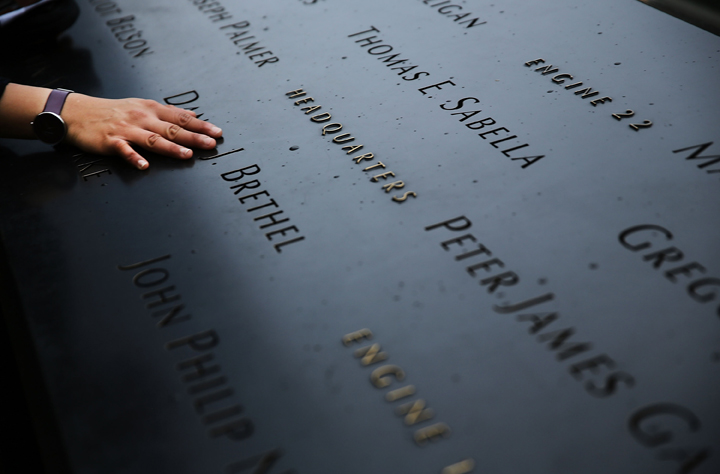Do you remember where you were, who you were with and what you were doing on Sept. 11, 2001? A new study suggests that whatever your memories are of that tragic day, there’s a good chance you’re wrong.

New research revolving around Americans’ memories about 9/11 found that 40 per cent of the time, their stories about that day changed as years passed.
“Human memory is not like a computer. Human memory is extremely fallible,” study author, Dr. William Hirst, told Time.
“You begin to weave a very coherent story. And when you have a structured, coherent story, it’s retained for a very long period of time,” he explained.
READ MORE: PTSD and memory – Canadian docs study survivors on plane near-disaster
The study, out of the New School for Social Research, had researchers ask 2,100 Americans across the country to share personal details about their whereabouts on 9/11 just days after the attacks.
The researchers then followed up one year, three years and a decade after. Forty per cent of the time, they gave different stories.
It isn’t intentional, the researchers say. Hirst described misremembering as a consequence of “time-splice error” – the nuts and bolts of minute details are all there, but people forget how they come together. Time refers to one example from the study: a man recalls being on the street when he first heard the news, but he was actually in his office. He spent time in both places on Sept. 11, but as time passed, the memory gets foggy.

Get weekly health news
And once a memory changes, sometimes it takes hold. In the study, once people’s stories changed, they tended to recount the same false details in the following years.
READ MORE: No one’s ‘immune’ to memory distortion, even those with superior memory
Even the handful of people gifted with superior memory – able to recall the minutest details in their lives – fall victim to memory distortion, according to previous research.
Lawrence Patihis, an American academic, told Global News last year that there are about 50 confirmed people with Highly Superior Autobiographical Memory, an innate ability to recite news events and even incredibly specific details about their lives that happened decades earlier.
“If you generate a date at random from the last 15 years, they almost always can give you the day of the week – without calendar calculation. It’s amazing,” Patihis said.
“When you actually try to do it, it becomes clear that HSAM is almost unbelievable,” he said.
READ MORE: As dementia sets in, artists still recall drawing from memory
Yet when he planted misinformation into stories about United Flight 93 that crashed on Sept. 11, those with the superior memory confused their thoughts.
The information laced with mistakes threw them off – they fared just as well as their counterparts with average memories. The HSAM group even reported that they’d seen footage that didn’t even exist.
But, for the most part, our memories are reliable. We have consolidated memories and knowledge of our lives that span years; we don’t forget our names, addresses, phone numbers and family members.
The only trouble is when misinformation is introduced. That glitch in processing information can alter a whole range of memories, from simple words to details in slideshows and even entire events in childhood.
READ MORE: Does shift work hurt your brain? Memory, processing affected, study warns
The latest research was published in the Journal of Experimental Psychology. Read the full findings here.
Where were you on Sept. 11, 2001? Let us know in the comments section below or add your comment on Facebook.
carmen.chai@globalnews.ca
Follow @Carmen_Chai








Comments